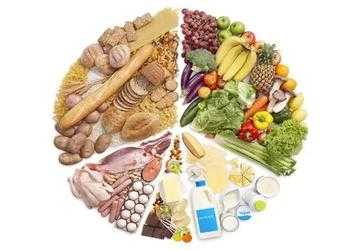How a Balanced Diet Can Protect You from Chronic Diseases?
As the saying goes, "you are what you eat". But have you ever thought about the deeper meaning of this sentence?
The food you put on your plate not only satisfies your cravings, but also has a profound effect on your physical and mental health.
In today's world, where convenience often takes precedence over quality, we are rife with unhealthy eating habits.
When these decisions are made on a regular basis, they take a toll on our bodies and minds, leading to an increased risk of chronic diseases such as diabetes, heart disease, and obesity, just to name a few.
To help you improve your diet, we've created this insightful blog post. It's not just about eating healthy; it's about changing your relationship with food and understanding how it affects your health.
We'll take you through the realities of malnutrition, explain the intricate connection between what we eat and our health, and give you a road map to improve your eating habits. So grab a cup of green tea, relax, and let's embark on a journey to better health through the power of a balanced diet.
Chronic diseases linked to unhealthy diet
Think of your body as a performance car. It runs smoothly and efficiently, but only if the correct grade of gasoline is used. Likewise, each nutrient we consume in our bodies plays a unique role, and each is critical to the function of a different organ.
What happens when we make bad food choices? Well, we often end up feeding our bodies empty calories full of sugar and refined content—barely the fuel our bodies crave.
People who regularly make unhealthy food choices aren't just messing up their mealtimes; they're opening the floodgates for all kinds of health problems. From minor health ailments to serious medical complications, poor eating habits can actually start a domino effect of health problems. Let's demystify the health problems that chronically unhealthy eating can bring into your life.

The Serious Problem of Obesity and Overweight
Can you believe that 1 in 6 American children ages 2 to 19 struggle with the burden of obesity? This may seem like a number, but it is a reality with serious implications. Obesity, especially in our little ones, increases their susceptibility to heart disease, type 2 diabetes and certain types of cancer. good news? A balanced diet combined with regular exercise and enough sleep can help our children grow up healthy and prevent obesity.
It's not just about getting the right clothes on, it's about paving the way for a future without these health complications.
Eliminate strokes and heart attacks
If heart disease and stroke have two arch-enemies, it's high blood pressure and high cholesterol. Worryingly, our love of high-salt diets is pushing our blood pressure into the danger zone, increasing the risk of heart attack and stroke.
Picture this: While the recommended salt intake is less than 2,300 mg per day, the average American consumes more than 3,400 mg of salt per day.
Packaged foods, processed snacks, and cafeteria products are silent sources of sodium in our diets.
Antidote? Eat a high-fiber, low-fat diet, limit your sodium intake, and stay active. It's not just adding years to your life, it's adding vitality to your years.
The Sweet Dangers of Type 2 Diabetes
Obesity isn't just associated with increased waist size; it's a powerful trigger for type 2 diabetes. As our bodies get heavier, they also can't use insulin efficiently, which could pave the way for this chronic disease.
It's a silent epidemic in the United States, where more than one in three adults, or roughly 96 million people, have prediabetes, and a frightening eight in 10 don't know they have the condition.
Despite a slight decline in new cases, the number of people diagnosed with diabetes has doubled in the past two decades due to aging populations and rising obesity. It's time to confront this sweet danger head-on by monitoring our weight and making smarter food choices.
The Invisible Link Between Diet and Cancer
Certain types of cancer have a secret culprit -- an unhealthy diet. How does this work? An unhealthy diet can lead to weight gain and obesity, which in turn increases the risk of at least 13 different types of cancer, including uterine, breast and colon cancer in postmenopausal women.
Foods and drinks high in sugar and highly processed can lead to weight gain and increase the risk of cancer. Red and processed meats have also been linked to a higher risk of colon cancer.
As we stroll through the grocery store, it's important to remember that our food choices can literally mean the difference between life and illness.
How can a healthy diet keep you from chronic disease?
Are you wondering how your diet can help prevent serious diseases like heart disease, stroke, diabetes or osteoporosis?
Let's dig a little deeper and discuss five chronic diseases that you can prevent simply by eating healthy.

1. Fight obesity with a balanced diet
Think of obesity as a shadowy figure that quietly controls a host of diseases—from type 2 diabetes and osteoporosis to stroke and heart disease.
When we overeat high-calorie, fatty and sugary foods, not only do we gain weight, but we can damage our bones and put stress on our vital organs.
But here's the good news: When we choose healthy, nutrient-dense foods, we naturally maintain a healthy weight and thus avoid excess fat. It's not just about vanity, it's about taking care of our bodies from the inside out.
So why not make a pact with yourself to quit junk food and feel healthier and healthier?
2. The power of nutrients
Our body is like a finely tuned machine, with each part requiring a specific fuel to function optimally. For example, if you don't get enough calcium, your bones may weaken, making you vulnerable to osteoporosis.
Likewise, eating saturated fat can lead to high cholesterol and high blood pressure, which can lead directly to cardiovascular disease.
But don't despair! By eating a diet rich in the proper nutrients, we can avoid these health problems.
3. Mood and motivation fuel
Have you noticed how a good mood can motivate you to exercise more? The right foods are known to boost your mood and make you more likely to get out of bed and exercise—an important part of disease prevention.
There's another bonus: A balanced diet increases "good" cholesterol while reducing bad triglycerides. This results in better blood flow and keeps away dangers like heart disease, stroke, diabetes and high blood pressure.
4. Strong Teeth and Bones
As we age, our bones lose strength, which can lead to diseases like osteoporosis. But did you know that a calcium-rich diet helps maintain strong bones and teeth?
Of course, dairy is synonymous with calcium, but there are other sources, such as canned salmon with bones, sardines, or pilchards.
You can also eat dark green vegetables like kale and broccoli, or choose fortified grains, soy products and juices.
5. Heart health – a top priority in your diet
Eating a heart-healthy diet rich in fruits, vegetables, whole grains, and low-fat dairy is key to lowering blood pressure and cholesterol, thereby reducing the risk of heart disease.
On the other hand, a diet high in salt and saturated fat can quickly lead to high blood pressure and cholesterol.
So how about including one serving of fatty fish like salmon or trout in your meals each week? These fish are rich in heart-healthy omega-3 fatty acids. Doesn't that sound like a great way to keep your heart healthy?
Conclusion
To wrap up this informative exploration of nutrition and health, let's pause and consider an important fact we discovered: Your diet plays a vital role in your overall health plan. Remember, every bite you eat isn't just about satisfying your taste buds; it's an opportunity to replenish your body with health-boosting nutrients, or to flood it with virus-causing toxins. When we regularly choose foods that are high in sugar, fat and calories, our bodies are inadvertently exposing our bodies to a host of health problems.
But hope never fades away. Simple, healthy, and nutrient-dense foods can actually help us avoid these health problems.
So let's redefine our relationship with food and use it as a powerful weapon in our fight against chronic disease.
Cheers to good health and smart food choices!